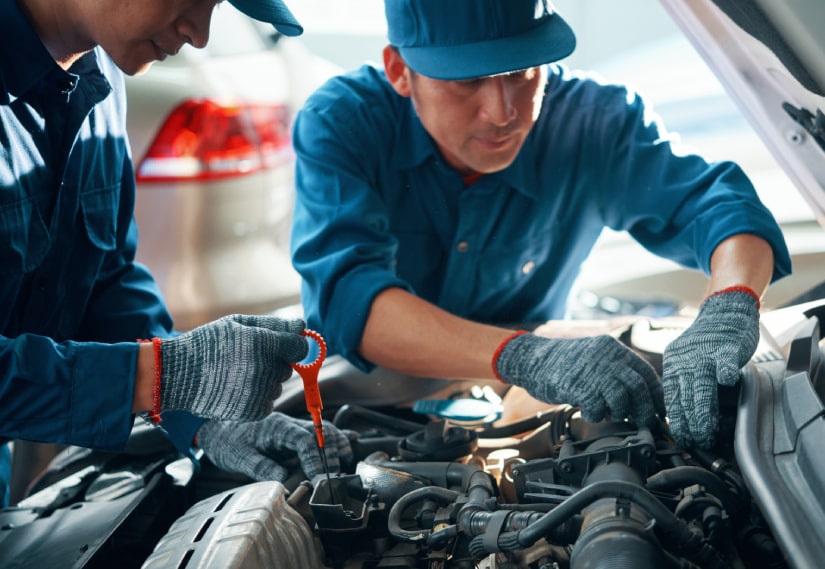Common Issues with Starter Motors and How to Troubleshoot Them?
Date Posted: 23 January 2024

The starter motor plays a crucial role in the ignition process of an internal combustion engine. Of all the electrical auto parts, it’s the one that gets your vehicle’s engine running — but, like any mechanical part, starter motors can encounter issues. In this blog, we’ll explore some common problems associated with starter motors and provide troubleshooting tips to help you identify and address these issues.
Starter Motors: What You Need To Know
Before we delve into common problems, let’s outline the basics of how a starter motor works. At a fundamental level, all you need to know is that when you turn the key to start your vehicle, the starter motor engages with the flywheel or flexplate, which initiates the engine’s crankshaft rotation. This, in turn, starts the combustion process. If you turn your key and nothing happens, that’s a strong sign that your starter motor has failed. If it ain’t working, your vehicle won’t start!
Aside from unresponsiveness, here are some common issues with starter motors and what you can do to address them.
Common Issues
1. No Cranking Sound
If you’re not hearing a cranking sound from your starter motor, this could be due to a faulty ignition switch, a dead battery or a defective starter motor. To address this issue, check the battery’s charge, inspect the ignition switch for issues, and test the starter motor for functionality.
2. Clicking Noise
Unless you have your indicator on, clicking noises are never a good sign for your car. It usually means your battery’s on the way out — if not dead — or your electrical connections are poor. If you hear a mysterious clicking noise, be sure to clean and tighten your electrical circuits, test battery voltage and check the battery terminals for corrosion.
3. Whirring Sound
A whirring sound may be a sign of a worn-out starter motor or issues with the starter solenoid. Inspect the starter motor for visible damage, listen for unusual sounds, and check the solenoid’s operation.
4. Grinding Noise
This noise suggests that the starter gear is not disengaging from the flywheel after the engine starts. To confirm if this is the case, inspect the starter gear and the flywheel for damage, and replace any worn-out components.
5. Intermittent Operation
Intermittent issues may stem from a faulty ignition switch, a failing solenoid or loose electrical connections. To determine the culprit, conduct a thorough inspection of the ignition switch, solenoid and wiring, tightening any loose connections.
General Troubleshooting Tips
Sometimes the cause or the symptoms are not clear-cut. If you’re struggling to isolate the issue, try some of these more general troubleshooting tips.
1. Battery Check
Much as it is for many devices nowadays, underperformance is often the case of a low battery. In the case of a car, low battery voltage can lead to starter motor issues. For this reason, you should charge the battery to its full capacity and see if that helps.
2. Ignition Switch Inspection
Is your ignition switch working as it should? Test the ignition switch for proper operation. If it’s faulty, replacing it may resolve starting problems.
3. Electrical Connections
Sometimes systems fail due to faulty connections or wiring. Inspect and clean all electrical connections, including battery terminals and ground connections, and see if that gets your (starter) motor running.
4. Starter Solenoid Test
Sometimes, a starter motor won’t engage due to a defective solenoid. Be sure to check if the solenoid is working and go from there.
5. Visual Inspection
Alternatively, you could survey the starter motor itself for signs of damage — such as loose wiring, corrosion or worn-out components — and fix them accordingly.
6. Flywheel Examination
As we know, the flywheel (or flexplate) plays a crucial role in engaging the starter motor. So, if you hear grinding noises, that could be due to a damaged flywheel, which you should promptly check for missing teeth or damage.
7. Starter Motor Bench Test
If you’ve tried all our troubleshooting suggestions and are still no closer to resolving the issue, handball the problem into the hands of a professional auto parts service, which can conduct a bench test for your starter motor.
Preventive Maintenance
Of course, there are preventative measures you can take to prevent starter motor issues from the get-go. Here’s our best advice about preventative maintenance.
1. Regular Inspection
It never hurts to inspect the starter motor, solenoid and associated components on a regular basis.
2. Battery Maintenance
Keep the battery charged and replace it if it shows signs of weakness.
3. Avoid Over-Cranking
Limit prolonged cranking, as it can lead to overheating and damage to the starter motor.
4. Prompt Repairs
If you sustain any damage, it pays to address these problems promptly, lest minor niggles escalate into major repairs.
Understanding common issues with starter motors and being able to troubleshoot them is essential for maintaining a reliable vehicle. Regular inspection, timely repairs and proper maintenance can go a long way in ensuring that your starter motor performs optimally, getting you on the road without a hitch. If you’re unsure about troubleshooting or encounter persistent issues, it’s best to seek professional assistance. If you’re a tinkerer at heart, we have an array of auto parts online for you to peruse and purchase.
Browse the many collections available on Machter’s website to get your vehicle up and running like never before!





